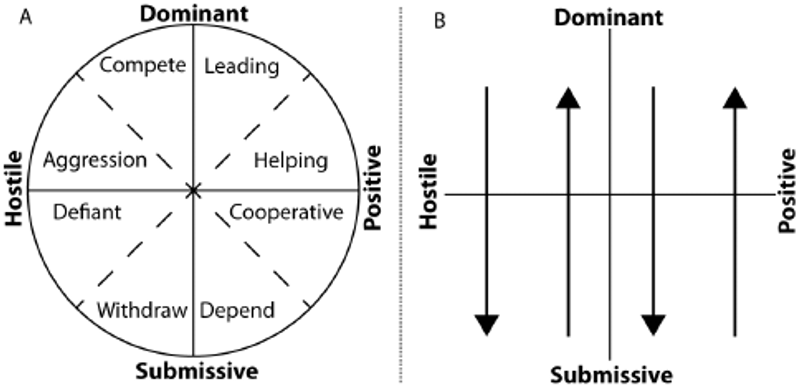
How to take more space as an introvert

Many introverts I coach tend to give more space to others than to themselves. What they often don't realize is how that preference can unconsciously make them feel subservient to the other. By being more aware of how your behavior influences that of others, you can do something about this.
Most introverts tend to give in when they are shouted at. The reverse also applies: if you are withdrawn or dependent, the other person will almost automatically display authoritarian or leading behavior. Your behavior therefore directly influences that of the other.
Most communication between people is not about the content at all, but about the relationship between people. Disagreements can arise if you do not respect the wishes of the other person. That has a lot to do with power. Someone who wants to be in charge will try to put you in a subordinate role. But what if you, as an introvert, don't feel comfortable with that at all?
Rose of Leary
Both through what you say and through non-verbal communication you can make clear to the other person what your wishes are in the conversation you are having. The American psychologist Timothy Leary has devoted much attention to the relationship in communication. This involves two questions:
- Who is the boss? (who is above and who is below?)
- With each other or against each other? (together or against?)
Leary found two striking phenomena in communication between people: striving for self-interest as well as for common interest leads to the same behavior in the other. In addition, leading elicits following, and vice versa. Someone who adopts a dominant position therefore expects the other to adopt a subordinate position. And if you subordinate yourself, the other person will tend to be dominant.
Leary made a model for this, the so-called Rose of Leary:

Introverts often tend to sit at the bottom, by withdrawing, following, cooperating or even becoming rebellious. However, by taking the other person's style into account, you can change this:
- See what behavior the other is showing and join in with this (if the other is below, you will sit there too)
- Cross over to 'the other side' (i.e. from attacking to leading or from leading to helping)
- If the other person doesn't go with you right away, stick with it consistently until the other person does. Of course with respect for the other.
In this way, as an introvert, you can ensure that you do not constantly end up in a subordinate role and that your input is heard. It's a matter of giving space and taking space.
Do you want to learn how you can get the space to share your ideas as an introvert? In my program The Power of Introversion we discuss this extensively. I would be happy to discuss this further during an introductory meeting.

About the author
- Karolien Koolhof is a coach voor introverts and gifted individuals
- Author of the book Introvert Leadership
- Contact

